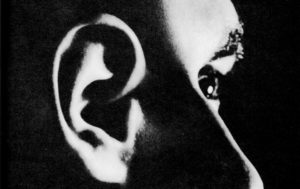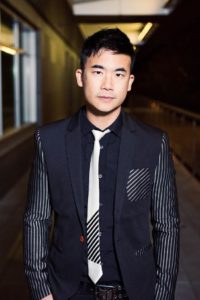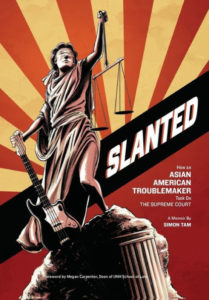Contributed by one of our Anthology authors, Simon Tam
 Recently, I had an impactful (and surprising) discussion around race. Here’s how it went …
Recently, I had an impactful (and surprising) discussion around race. Here’s how it went …
Them: “… I grew up here in the South in an Irish and Catholic family; it was really bad.”
Me: “Indeed, Irish immigrants were treated very poorly.”
Them: “Yes, we were treated just as bad as Black families.”
Me: “Well, I wouldn’t say that …”
(at this point, I thought, “Here we go …”)
Them: “And I don’t know where all this hate comes from, that’s not how we bring people up in this country.”
Me: “It’s complex, we’re taught a lot that reinforces inequality. We’re also not taught many things that would show us other experiences other than White dominant culture, at least in any real sense.”
Them: “I had a Black friend so I learned about some things.”
(Inner nervousness about what comes next)
Them: “Well, I don’t know how to put it right but it was like I realized that my experience as an Irish was different because I could hide behind it. My friend couldn’t hide. When we were in public, my friend was only seen as Black. People didn’t know I was Irish so they didn’t treat me like they would if they actually knew.”
In one fell swoop, this person inadvertently described one of the benefits of this thing we talk about called “White privilege,” the ability to hide, to blend. To not be a target.
Based on many conversations I’ve had before, I was expecting a different trajectory. And because it changed course, I got less tense. I talked about my own experiences, we shared culture, approached things with compassion.
… and yes, addressed some of the misconceptions/differences in how the Irish experience differed from the African slave trade. But I’m not sure that would have happened without listening first. If I’d jumped in with counterpoint arguments, they’d probably have just gotten defensive and derailed it all.
It reminded me once more of Dr. West’s words, “Justice is what love looks like in public.” Sometimes that just means listening, something I’m trying to better learn myself, every day.
 BIO: Simon Tam is an author, musician, activist, and troublemaker. He is best known as the founder and bassist of The Slants, the world’s first and only all-Asian American dance rock band. He is the founder of The Slants Foundation, an organization dedicated to providing scholarships and mentorship to artist-activists of color.
BIO: Simon Tam is an author, musician, activist, and troublemaker. He is best known as the founder and bassist of The Slants, the world’s first and only all-Asian American dance rock band. He is the founder of The Slants Foundation, an organization dedicated to providing scholarships and mentorship to artist-activists of color.
Simon has been a keynote speaker, performer, and presenter at TEDx, SXSW, Comic-Con, The Department of Defense, Stanford University, and over 1,200 events across four continents. He has set a world record by appearing on the TEDx stage 13 times. His work has been highlighted in over 3,000 media features across 150 countries including The Daily Show with Trevor Noah, NPR, BBC, New York Times, and Rolling Stone.
In 2016, Simon joined President Barack Obama, George Takei, Jeremy Lin, and other celebrities in the #ActToChange campaign to fight bullying. He recently helped expand civil liberties through winning a unanimous victory at the Supreme Court of the United States for the landmark case, Matal v. Tam in 2017.
He has received many accolades for his work, including: “The Mark T. Banner” award from the American Bar Association, the “Hugh M Hefner First Amendment Award,” “Milestone Case of the Year” from Managing IP Magazine, the “Lifetime Achievement Award” from the Ovation Gala, and “Distinguished Alum Award” from Marylhurst University.
 In 2019, he published his memoir, Slanted: How an Asian American Troublemaker Took on the Supreme Court. You can purchase it wherever books are sold and read excerpts at www.slantedbook.com
In 2019, he published his memoir, Slanted: How an Asian American Troublemaker Took on the Supreme Court. You can purchase it wherever books are sold and read excerpts at www.slantedbook.com
